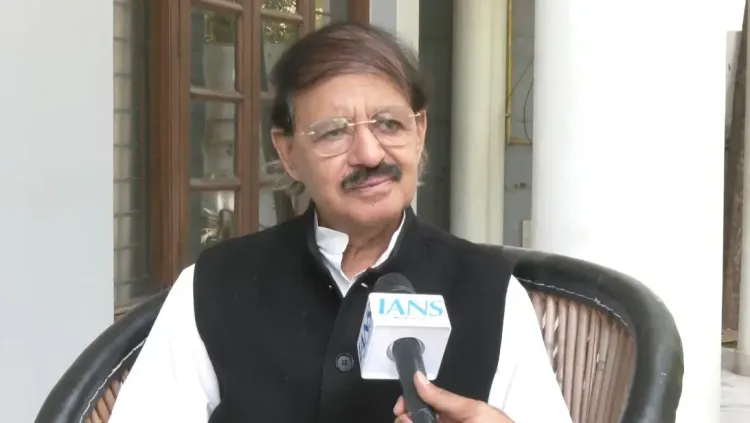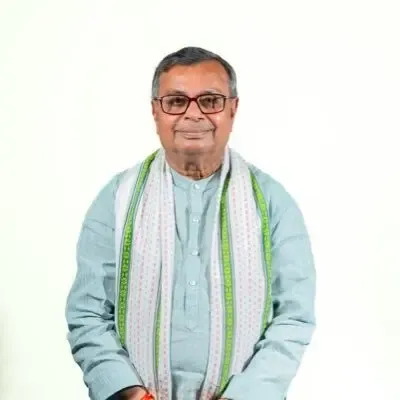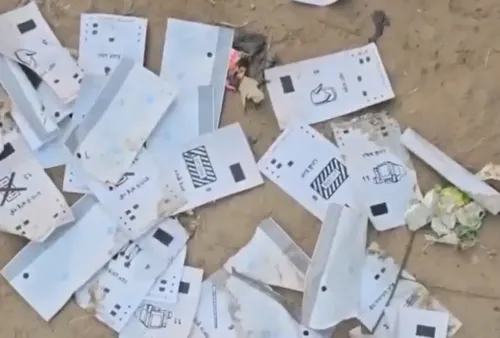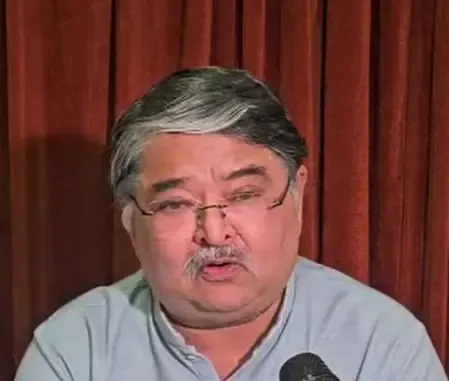Congress to Revise Waqf Law in 2029 if Elected: Rashid Alvi

Synopsis
Key Takeaways
- Congress aims to amend the Waqf law if elected in 2029.
- Current protests against the bill are seen as futile by Rashid Alvi.
- The BJP is accused of inciting protests among Muslims.
- Committee consultations for the bill received over 97 lakh petitions.
- Concerns raised about the inclusion of non-Muslims in Waqf property management.
New Delhi, April 2 (NationPress) Senior Congress leader Rashid Alvi stated on Wednesday that the Congress party intends to amend the waqf law upon gaining power in 2029. This assurance came during a vigorous debate in the Lok Sabha regarding the Waqf (Amendment) Bill, 2025, which was introduced by Minority Affairs Minister Kiren Rijiju and is based on recommendations from a Joint Parliamentary Committee.
In an interview with IANS, Rashid Alvi remarked, "Once the Bill is enacted, protesting serves no purpose. The BJP aims to incite protests among Muslims; they thrive on situations like Shaheen Bagh, which bolster their stance. The BJP politicizes these matters, enhancing its own power. Thus, agitations are futile. While the BJP remains in control, they will neither heed the protests nor engage with dissenters. I assure you that in 2029, under our governance, we will revise the law should the bill be enacted."
Alvi also responded to the BJP’s assertion that opposition leaders are misleading the populace. "Is Congress misleading the Muslim community? Is Mamata Banerjee misguiding? Is the DMK misleading? The BJP accuses numerous opposition parties of deception. The United States Commission on International Religious Freedom has indicated a growing hostility towards Muslims in India. Is that also misleading? The BJP has a tendency to solely blame Congress. This is 2025, just four years into their administration. This situation will not persist indefinitely. We will assume power and amend this legislation," he added.
The Congress leader also expressed his views on the current Parliament session regarding the Waqf (Amendment) Bill. "I have listened to Union Minister Kiren Rijiju’s address in the Lok Sabha. He has attempted to mislead the nation and Parliament. It pains me to see individuals who lack respect for Parliament in ministerial roles. They stand up and accuse others of dishonesty. 'Lying' should not be a term used within Parliament. If the government minister employs such language towards MPs, what remains of Parliament's dignity?"
"Regarding the Waqf, the BJP possesses the majority and can pass the law. However, today shall be remembered as a dark day in India’s history, akin to the day when the BJP and RSS jointly demolished the Babri Masjid. Today, once more, the BJP administration is fostering Muslim enmity. Future historians will view this government as one obsessed with Muslim animosity, similar to how they discuss Aurangzeb's Hindu hatred. Political parties within the NDA, such as Chandrababu Naidu and Nitish Kumar, if they endorse this bill, will be recognized as complicit in the BJP’s Muslim animosity," he said.
He further addressed the BJP’s claim that Muslims would not be adversely affected by the bill, asserting that it serves their interests. "Waqf properties are religious assets of Muslims, yet non-Muslims are being included in the management committees. Would Muslims be included in temple committees? Create a law permitting Muslims in temple committees and Hindus in Muslim committees. But that is not the case. Hindus will be represented, and individuals from the BJP and RSS will endeavor to seize mosque properties, which rightfully belong to Muslims," he concluded.
The Waqf (Amendment) Bill, 2025, seeks to enhance the administration of Waqf properties, implement technology-driven management, tackle complexities, and ensure transparency, stated Union Minister Rijiju. He mentioned that the consultation process led by the Joint Parliamentary Committee (JPC) was the most extensive ever conducted by a parliamentary panel in India’s democratic history. He disclosed that over 97.27 lakh petitions and memorandums were submitted to the JPC, with the committee thoroughly reviewing each before finalizing its report.
The minister also noted that 284 delegations, including Waqf boards from 25 states and Union Territories, had provided their perspectives on the bill.









